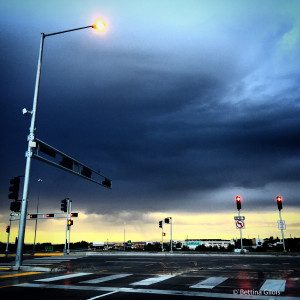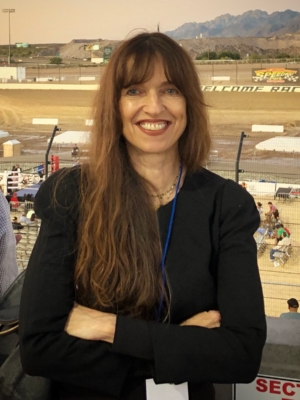Writing: The Toolbox VI
Dialogue is an important ingredient to any good story. When characters begin to talk, they not only come to life for the reader, they become real for the writer as well. Writing good dialogue is essential to drawing a reader into the character world you’re creating, whether it is in fiction, nonfiction, or screenplays. Characters reveal themselves with their spoken words, but those words don’t always come easy. There are a few tricks, however, to make those words come alive.
I continue my series writing about the collected tools of the craft, based on my long-standing experience of writing screenplays and books.
16. The Disconnect
Tension creates drama. In physics, tension is the pulling force exerted by each end of an object such as a string or cable, or a rod or truss. At an atomic level, tension arises when molecules are pulled apart from each other and gain electromagnetic energy. Every object under tension will pull on the object to which it is attached, to restore it to its relaxed state. This is the nature of drama, pulling and tugging to a restoration of the relaxed state.
One of the simple ways I’ve gotten my dialogue to come to life is by creating tension between the lines of dialogue of my speaking characters. If characters speak to each other in clear and direct sentences and responses, there is little tension and hence little energy to the exchange. Tension arises when people don’t talk directly to each other. It is often the disconnect, the lack of response, the side stepping, the avoidance, the omission, and the changing of subjects between characters that creates a natural sounding dialogue that is rife with tension and drama, and interesting for the reader.
Try writing your characters talking past each other. Have a character ask a question and have the other answer with an unrelated thought. Disconnect between characters reveals their differences, their yearnings, and a power play between them.
Instead of this:
Mother opens door. Daughter stands outside and says, “Hi, Mom.” Mom says, “Come in. Did you bring the fish?” Daughter answers, “Yes, I did. Had to get it from the store in this rain.” Mother says, “Let’s bring it to the kitchen.”
Try this:
Mother opens door. Daughter stands outside and says, “What took you so long?” Mom ignores the question, “Did you bring the fish?” Daughter insists, “I rang the bell three times.” Mother changes the subject, “Is it raining?” Daughter says, “Yes, it’s raining. You can see it’s raining. Did you hear me ringing?” Mother says, “I’m going back to the kitchen. Bring the fish.”
Of course, the tension created through dialogue has to relate to the intended content of the story. But as characters talk with some disconnect, evade answering, side step questions, and push and pull over control of the flow of the conversation, you enliven your dialogue and make your readers engage with interest and curiosity to figure out what is going on between your characters and who will gain the upper hand.
17. Unfinished Sentences
This is a simple one, and it’s a pet peeve for me. Unfinished sentences in dialogue are unnecessary and not engaging. I have seen, in some novice writers, there is a tendency to attempt to create drama by having characters interrupt each other and not finish their sentences (presumably because their characters are so overwhelmed by the drama of a situation they are left speechless). But there is no drama in the unfinished sentence. There are only questions left unanswered for the reader, and a lack of engagement with the reader since the crucial subject of the sentence has been left out. Most of the time when I read an unfinished line of dialogue, I sense the writer doesn’t even have the completion of the sentence in mind, only the desire to create drama through the use of this dialogue device. I find myself wanting to finish the sentence, and being falsely manipulated into feeling something I don’t feel, since I lack information.
“But I was just—“ has me asking, “You were just what?”
“I thought he was—“ leaves me wanting to know, “You thought he was what?!”
There are a few times, very few times, when an unfinished sentence is necessary or called for. And once in a rare while that’s alright. But most of the time, I recommend avoiding this somewhat cheap trick. Allowing your reader the satisfaction of a finished line of dialogue gives them insight into the inner workings of your characters.
18. The Random Page Test
As an exercise in studying dialogue, I recommend taking any book, or perhaps screenplay, and opening it to a random page and looking at the dialogue. You will find in good writing that every page of dialogue is engaging, whether you know what’s going on or not. The dialogue is fresh, unique, natural, engaging, interesting, entertaining, and full of character quirks and personality.
Do the random page test on your own work often. Does your dialogue instantly engage? Is it written with unique and original wording, and with enough tension to make the reader instantly curious? Can you quickly understand what’s going in the scene by what is being said?
In Richard Ford’s short story Great Falls, a young man who was having an affair with a married woman stands outside on the porch with her young son, while the father confronts his wife inside the house. The scene is rife with tension by their disconnected dialogue, the avoidance and omission of the actual subject matter at hand, and the words and thoughts are fresh and unique.
Young man: “I like it out here. Nothing to bother you. I bet you’d see Chicago if the world was flat. The Great Plains commence here.”
Young boy: “I don’t know.”
Young man: “Do you play football?”
Young boy: “No.”
Young man: “I have been drinking. But I’m not drunk now.”
If I open to this page and see this dialogue, I immediately want to know what is going on in this scene. As a reader, I’m engaged and entertained by the artistry of the dialogue, and pulled in by the disconnect and the tension of the exchange.
Dialogue is a key that can unlock a characters mind. Some writers use very little; as a screenwriter I am trained to use dialogue copiously, and I do so whether I write scripts or fiction or creative nonfiction. Dialogue can be some of the most engaging part of reading.
Pay attention to your dialogue. To make it feel natural, create tension by pulling people apart in their speaking with one another. Have characters talk past each other, avoid each other’s questions, and try to take control over the other through dialogue. Make the exchanges unique and fresh and surprising, and you will engage the reader from page one.
Previous posts in the series:
https://lunchticket.org/writing-toolbox/
https://lunchticket.org/writing-toolbox-ii/
https://lunchticket.org/writing-the-toolbox-iii/
https://lunchticket.org/writing-the-toolbox-iv/
https://lunchticket.org/writing-the-toolbox-v/
All images courtesy of Bettina Gilois
Bettina Gilois is a Los Angeles based writer whose screen credits include the Bruckheimer film “Glory Road,” for which she was nominated for the Humanitas Prize, as well as “McFarland, USA” starring Kevin Costner, and the HBO movie “Bessie” starring Queen Latifah for which she received an Emmy Nomination for Outstanding Writing. Her book, “Billion Dollar Painter” for Weinstein Books, came out in 2014. She is a special contributor for the Huffington Post in Arts and Culture, and has been a professor of screenwriting at Chapman University, St. John’s College Film Institute in Santa Fe, and now Hofstra University’s Herbert Lawrence School of Communications in NY.










